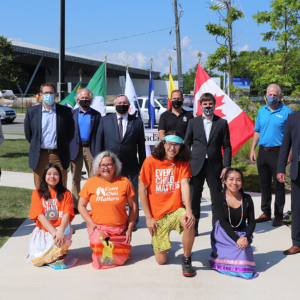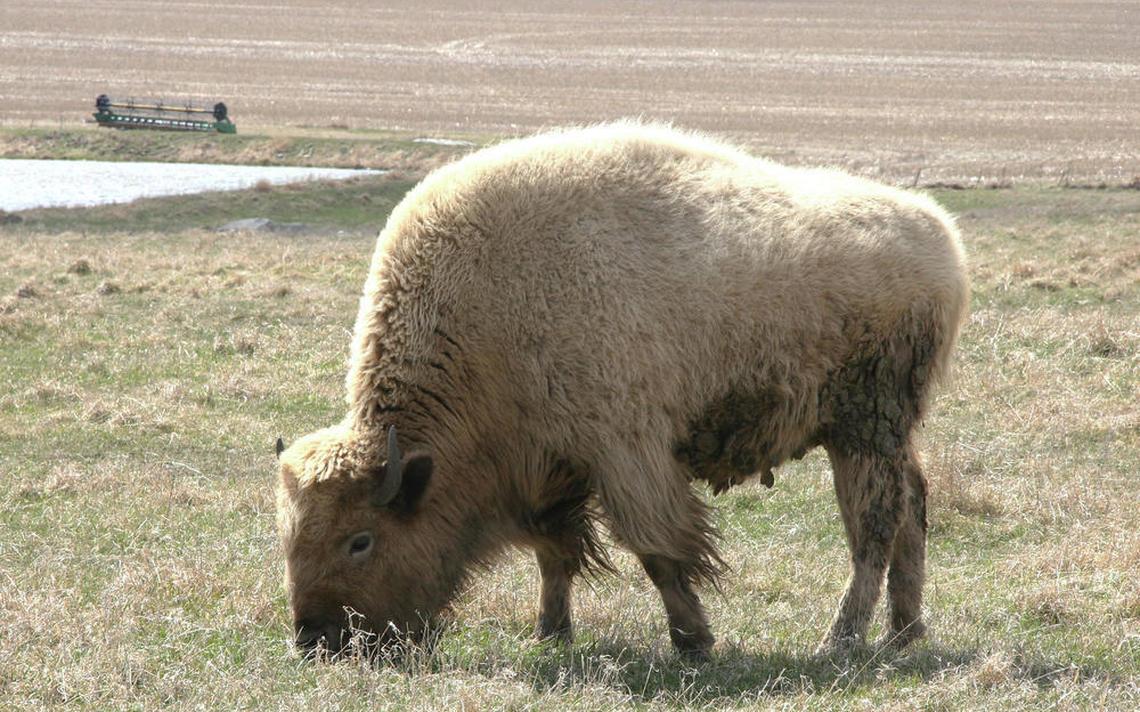On March 6th, the National Energy Board (NEB) approved the Enbridge Line 9 reversal project, allowing tar sands bitumen and Bakken shale oil to flow within 50 km of over 9.1 million people, and 18 First Nation communities, including directly through the Haldimand Tract, just south of Wrigley and Beke Roads. Independent engineering reports put the risk of a spill from Line 9 at 90% during the first 5 years of operation following the reversal.
The Haudenosaunee Development Institute (HDI) applied to be an intervener during the NEB hearings but was denied status. The HDI is mandated to interact with industry for the protection of Six Nation lands, and ensure proper protocols are followed regarding any development. In the lead up to the NEB hearings, HDI issued a statement to Enbridge identifying that consultation regarding Line 9 had been inadequate, and that HDI held concerns about the project.
Several First Nations were granted intervener status during the hearing, and presented concerns to the NEB about the nature of consultation, as well as environmental, health, and safety issues regarding the transport of bitumen and shale oil through aged pipeline infrastructure. In its final report, the NEB dismissed First Nation concerns stating, “…any potential Project impacts on the rights and interests of Aboriginal groups are likely to be minimal and will be appropriately mitigated.”
Just days before the approval, a W5 investigation found that Enbridge had purposely misled both the NEB and local First Nations, including the Aamjiwnaang First Nation (AFN), about their record of spills. Enbridge has had 9 spills at its Sarnia terminal since 2004, located on AFN territory. Enbridge had not notified local authorities about these spills. In light of the information, the AFN band council petitioned the NEB to allow for the introduction of new evidence before the decision. The NEB did not include the new evidence in its decision.
Following the NEB decision, noted AFN community activist Vanessa Gray told press, “Enbridge is over-looking the health and safety of millions people for profit. Aamjiwnaang is experiencing a health crisis that has been ignored by all levels of government and with the Line 9 approval, it will only get worse.”
Aamjiwnaang suffers from severe health issues due to its proximity to ‘chemical valley’, a cluster of 63 petro-chemical refineries that surrounds the community. An estimated 40% of its population require inhalers to breathe, and 39% of the women in the community have experienced miscarriages. In 2005, the community garnered international attention when it was discovered that 2 girls were being born for every boy, due to extreme pollution. Approximately one third of chemical valley exists on lands stolen or forcibly surrendered from AFN.
A community report on the NEB hearings entitled Not Worth the Risk has been released and has gained endorsement from 28 organizations, including the Council of Canadians. The report has also been endorsed by 14 academics, and 3 municipal councilors in Toronto.
The day after the NEB approval, hundreds of people rallied in Hamilton, Toronto, Burlington, and Peterborough to protest the decision. In Toronto, the group Rising Tide Toronto launched an online petition calling for civil disobedience against the pipeline and received over 500 signatures in the first 24 hours. The group Reclaim Turtle Island is calling for direct action against Line 9 on March 19th. For more information, please visit www.reclaimturtleisland.com








Comments are closed.